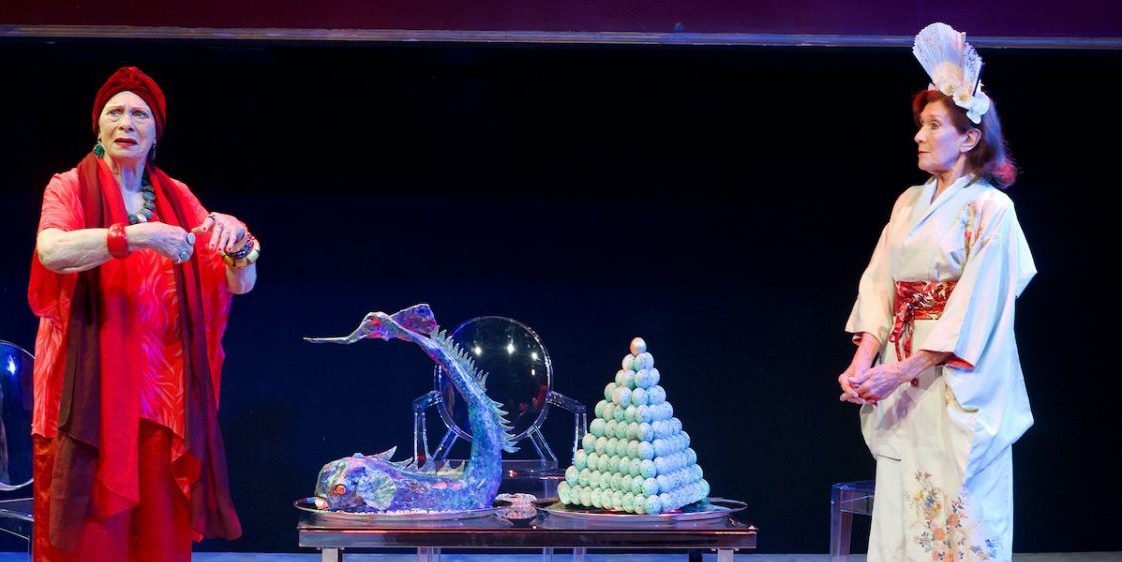The Milk Train Doesn’t Stop Here Anymore is set on a sprawling estate in the mountains of Italy’s Amalfi Coast. Flora “Sissiy” Goforth (Linda Marlowe), a wealthy widow, is unknowingly terminally ill and is determined to dictate her memoirs to Mis Black “Blackie” (Lucie Shorthouse), her secretary. She is a caricature of a southern Belle – a histrionic, hypochondriac who spends most of her time reminiscing about her dead husbands and shooting morphine and pills downed with brandy. One afternoon, a young and handsome poet, Chris Flanders (Sanee Raval), breaks into the property. He is known as the “Angel of Death” for his tendency to befriend rich, old women who mysteriously die shortly after.
After the intrusion, Sara Kestelman, ‘The Witch of Capri,’’(Sara Kestelman) is invited for dinner, adding much need humour to the play. Her vibrant outfit – a splash of gold bangles, draped in orange and a green turban – distracts the audience from the monotonous storyline that for a long time feels stagnant. Her powerful voice and punchy lines are entertaining and weaves much needed information into an otherwise confusing story.
The set is very simple, it consists of only a bed and a minibar. There is nothing to evoke the sense of being in the Mediterranean. The lighting could have been used to at least create a sunnier environment. Due to the position of the stage being in the middle, surrounded by the audience, the actors often spoke into the distance, away from their partner, which lessened the impact of their lines and often felt detached and random. The modern setting, with the inclusion of mobile phones, doesn’t work at all with the cultural references in a very much 1950s script.
Unfortunately, there is a lack of genuine connection between any of the actors when they are together on stage. Sanee Raval has an intriguing presence but at times, his performance felt too intense, even mad. Lucie Shorthouse was agreeable, although, her high did add an unnecessary clumsiness that took away from her character. Sarah Kestetlman brought essential energy and comedy that very much saved the play.

